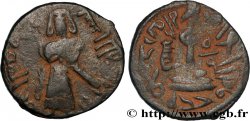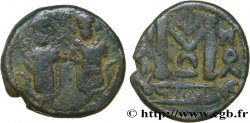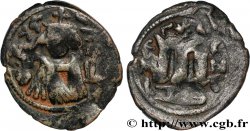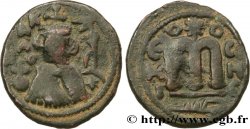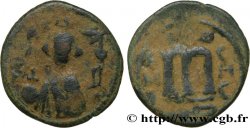bby_561787 - ARAB-BYZANTINE Tremissis
Not available.
Item sold on our e-shop (2020)
Price : 4 590.00 €
Item sold on our e-shop (2020)
Price : 4 590.00 €
Type : Tremissis
Date: indiction 112
Date: n.d.
Mint name / Town : Afrique
Metal : gold
Diameter : 11 mm
Orientation dies : 11 h.
Weight : 1,37 g.
Rarity : R2
Catalogue references :
Predigree :
Exemplaire avec son certificat d’exportation (n° 197811)
Obverse
Obverse legend : LÉGENDE LATINE CIRCULAIRE DÉGÉNÉRÉE.
Obverse description : Pal potencé surmonté d’un globe (croix modifiée), posé sur un degré.
Reverse
Reverse legend : LÉGENDE LATINE CIRCULAIRE DÉGÉNÉRÉE.
Commentary
Giulio Bernardi signale que les légendes sont en général très difficiles à décrypter et à interpréter. Cet exemplaire est non daté, les autres datés de l’an 95 AH (713), 96 AH (714) et 98 AH (716) connus respectivement à un, deux et cinq exemplaires alors que pour le type anonyme, nous avons 21 exemplaires recensés.







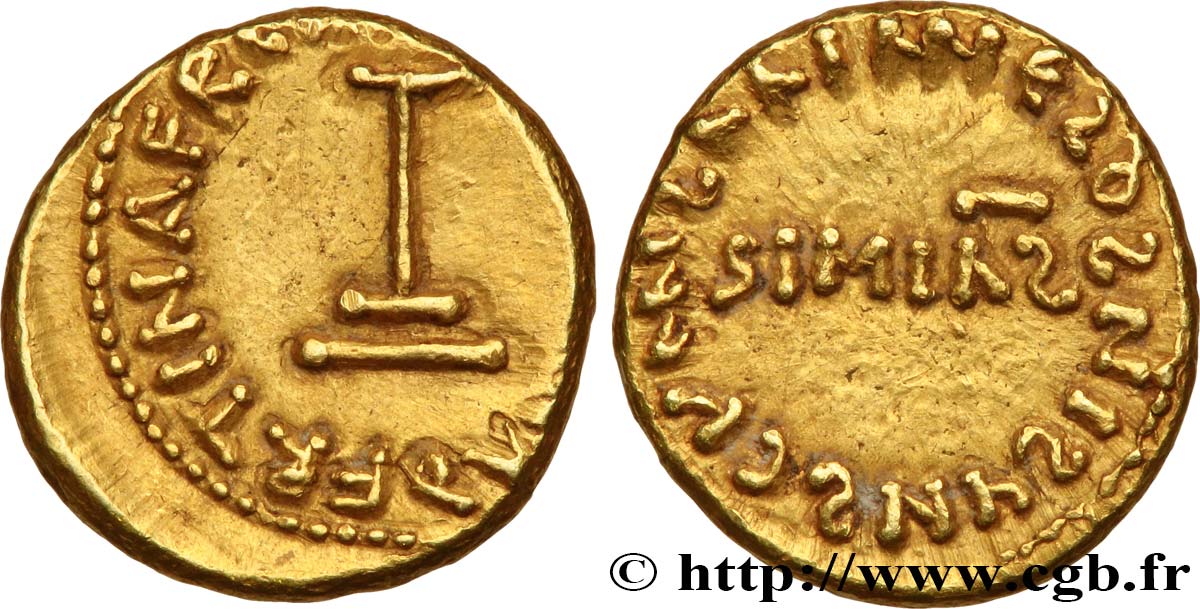
 Report a mistake
Report a mistake Print the page
Print the page Share my selection
Share my selection Ask a question
Ask a question Consign / sell
Consign / sell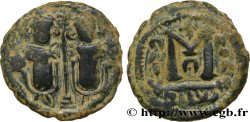
 Full data
Full data